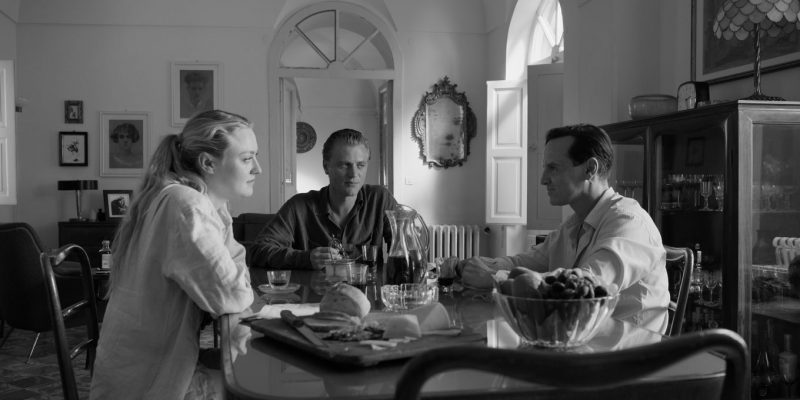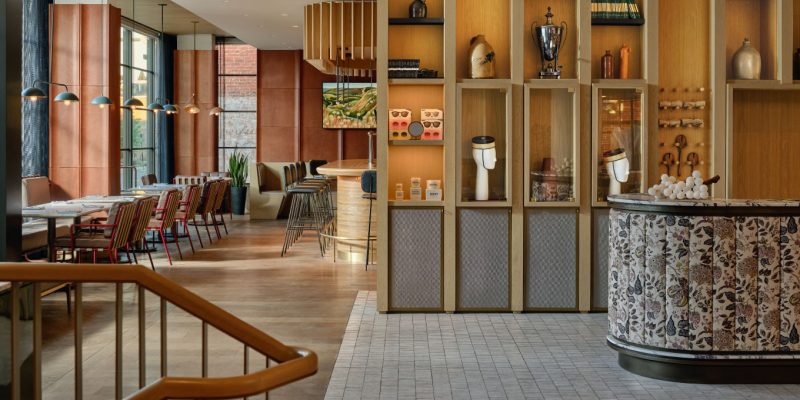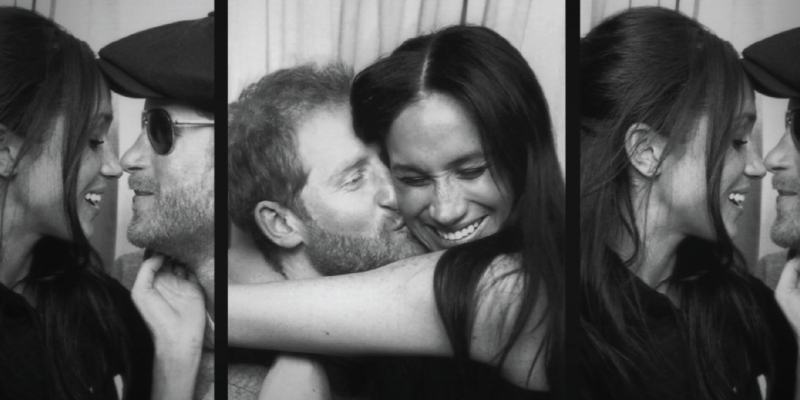Music
With ALPHA, Charlotte Day Wilson Makes Her Statement
She discusses her debut album, her early musical obsessions and the importance of doing things on her own terms.
by : Yasmine Shemesh- Aug 18th, 2022
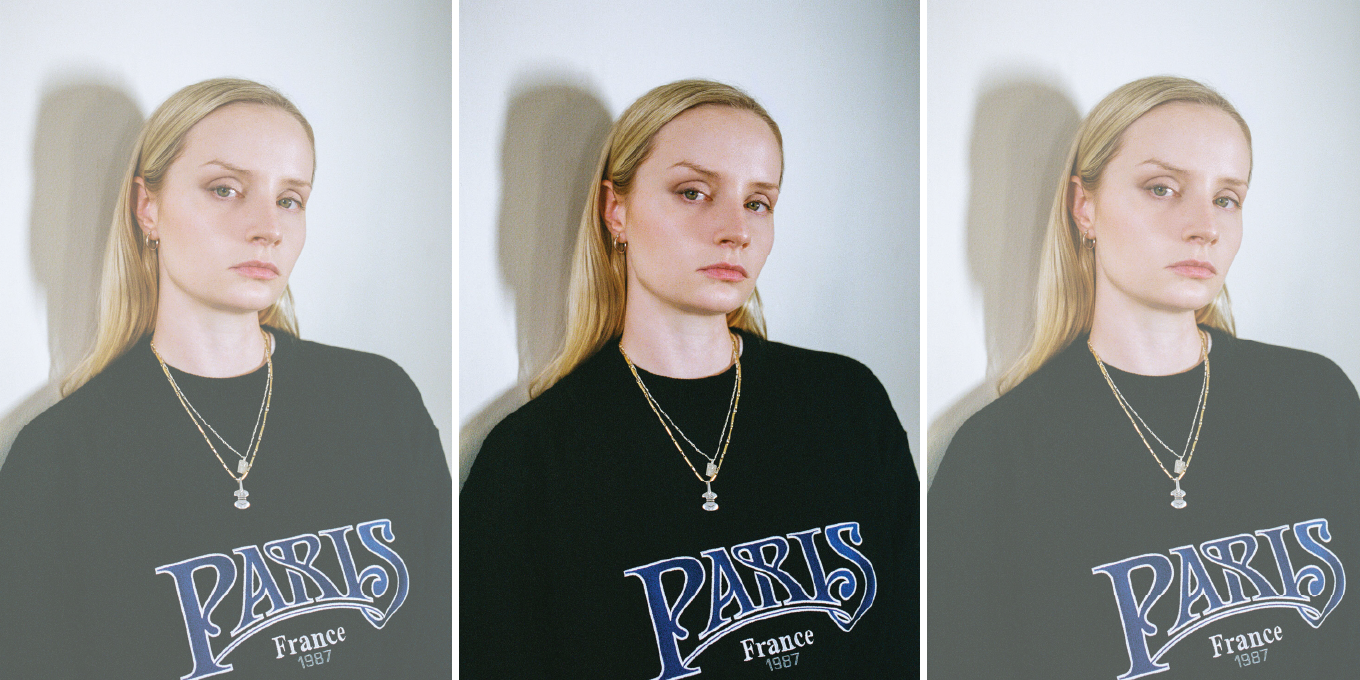
Othello Gray
Charlotte Day Wilson is catching her breath. The Toronto-based musician and producer has been vacationing in Mexico, south of Puerto Vallarta, after spending the past year touring and promoting her critically-acclaimed debut, ALPHA. It’s a well-earned break. And also a necessary part of her creative process, but more on that later. The album, which was recently shortlisted for the 2022 Polaris Music Prize, has been a deeply personal endeavour for Wilson. It’s something she has steadily worked towards since, with two hugely successful EPs—2016’s CDW and 2018’s Stone Woman—emerging as a singular talent with poetic songwriting and a smouldering voice that fills her beautifully sparse, meticulously-crafted R&B with a command over power and vulnerability better than any instrument.
Her previous work, Wilson tells ELLE Canada, saw her developing her craft in real-time—ALPHA is her statement. “The album is me cementing myself instead of introducing myself,” Wilson says. “And I was pretty intentional about how I wanted to do that.”
Transitioning seamlessly between genres like gospel and folk, ALPHA showcases Wilson’s range and sharp dexterity as a producer as she creates a varied musical landscape in which to explore themes of love and identity. She has surveyed love before, and often does in her music, but here Wilson goes deeper, particularly as a queer woman, than she ever has. A select cast of collaborators like BadBadNotGood, Daniel Caesar, Syd and R&B legend Kenneth “Babyface” Edmonds compliment her journey towards her most fully-realized artistic expression yet.
It’s been just over a year since the album was released. As she meditates on what’s next, Charlotte Day Wilson spoke with us about ALPHA, her early musical obsessions, and the importance of doing things on her own terms.
What does this particular collection of songs represent about you as an artist?
There’s so many directions you can go as an artist and in the music industry, and it’s all about the intentions that you have behind what you want for yourself and your career, your art. And, for me, I just wanted to cement myself as a producer and songwriter and singer and multi-instrumentalist. It was really important for me to do the album completely on my terms, produce 80% of it myself and do it on my own timeline. It was a real personal endeavour in terms of wanting to do it my way and not feel the pressure of wondering, like, what kind of success will it have; will it be digestible for the radio? It’s my own true expression as an artist.
ALPHA really highlights your strength as a producer. Did you have a specific vision for the sonic landscape?
I did a bit. The sonic vision, for me, was more just based on reference points—music and production that I find interesting and that ranges from vintage 60s soul records to modern electronic, or 90s R&B. The vision was more a conglomerate of my influences and just wanting to participate in the music that has shaped me and be able to reflect my influences within my own output.
Where did your love for those genres come from?
My first love within music was Motown. That’s what my dad introduced me to early on. Aretha [Franklin] and Stevie [Wonder], Marvin Gaye and all of these pillars of soul music. And I guess everything else kind of branched off from there. But I was also really, really into folk music and indie music when I was younger.
Do you remember the very first record you fell in love with?
My dad gave me this CD that told the Motown story. It started with “Money” by Barrett Strong and then the whole chronology of the label. They have, like, little sound bites, [Motown founder] Berry Gordy talking, and it just really sparked my interest in how music got made. But I think “Ain’t Too Proud to Beg” [by the Temptations] was probably my first obsession of a song.
I also remember—and my mom reminded me of this recently—how I was listening to a cassette and it was a recording that one of my dad’s friends had made. I must have been, like, 4, and I was like, ‘How is this happening right now?’ And I kind of freaked out. I was a bit overwhelmed and, like, upset, because I didn’t understand how I’m hearing this. My mom was like, ‘What do you mean?’ I’m like, ‘I press play and then I hear music, like, what is going on?’ [laughs] I was just so curious from a really young age how music got made.
Lyrically, ALPHA feels like your most personal work yet. You’re exploring themes of relationships and heartbreak, but also identity in a lot of ways. What was going on in your life while you were writing?
Yeah. To some extent, I do have to write a little bit cryptically and, even in interviews, speak a little cryptically about what I was going through, because some of it is so personal. The people who think songs might be about them, they might not actually be about them.
I was closeted my whole life until I was 18, but I had this obsession with love even before I ever fell in love. And I think that’s because the music that I listened to—there was so much music about love and this thing that I had never experienced. And it seemed to be the thing that moved everyone in the world the most. And I felt like I had experienced love, even though I hadn’t, just through the music that I listened to. But I knew I wanted to be in love so badly. And then when I finally came out and experienced real love for the first time, my life kind of became overcome by my pursuit of being in love and falling in love and relationships and centering my life and my world around my relationships.
I think as a musician, I’m lucky enough to be—well, maybe it’s a double-edged sword. I’m encouraged and allowed to really indulge in the relationships that I have, because they feed me creatively as well. So, I would say all the music and the themes I tend to explore about whatever relationship I’m in at the time and whatever external factors are at play as well.
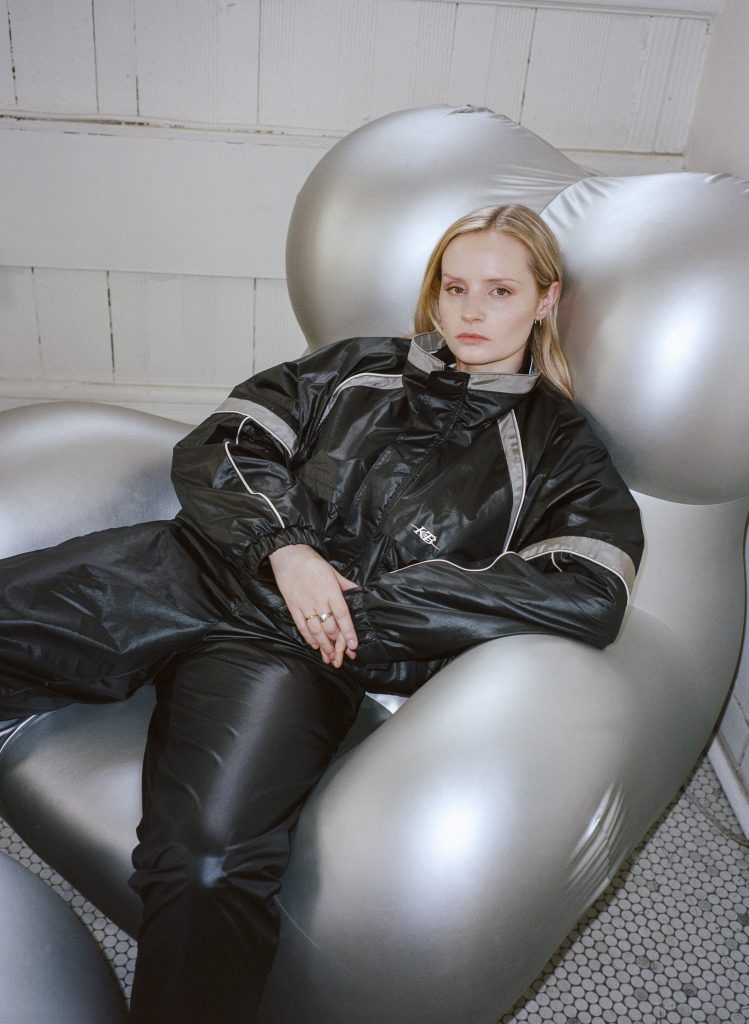 Othello Gray
Othello GrayThat crypticness is something I’ve always loved about your work, and how you pair that with striking imagery. A line on ALPHA that stands out to me is on “Mountains”: I become weak from the mountains / I’ll scream til the morning wraps me back around you. It’s so beautiful and visceral.
I remember writing that lyric. It’s funny, songwriting is such a mystical process. I remember that kind of just slipped out of my mouth. I was singing something, maybe some melodies, and I remember writing it down and looking back on it. Yeah, that’s actually a nice sentiment. But it’s a weird thing, I don’t really know how to talk about the lyrics, or the music, because it is so otherworldly and I don’t really know where it comes from a lot of the time. I often am also surprised by things that I write because I consider myself to be not the most outgoing person. I’m not the chattiest person you’ve ever met, in my day-to-day life, and so I think that there’s something that happens—words come out of me when I’m singing that would never come out of me when I’m speaking.
On that note, I wanted to ask about the significance of the title, ALPHA, because I know you chose it specifically to be unapologetically open about being a gay woman, and I was wondering how that might also play into how you describe yourself as being a bit shy as well.
Yeah. It’s a really bizarre position to be in, to have this public facing personality, basically, that is so personal and so vulnerable when in my day-to-day life I’m quite private and shy. It might not seem revolutionary to other people given where the climate is like, you know, there’s a lot of visibility now for gay artists and it’s amazing. I wasn’t trying to do anything revolutionary for the general conversation around queerness and music, but, for myself, this is a big deal to be that open and kind of in your face about my own queerness and my own vulnerability within my explorations through identity.
That’s amazing. ALPHA also carries a sense of spirituality, particularly with songs like “Mountains,” “Adam Complex” and “If I Could.” Where did those references come from? Is spirituality a part of your life?
“Mountains” and “If I Could” were written with other people whose influences were definitely heavy on those things, so there was other people’s spirituality, I think, involved in those songs in particular, and probably their gospel capabilities.
But, for me, I’ve always been incredibly moved by gospel music. My grandfather was a minister and, while I wasn’t religious, I always knew that religion and music were heavily tied. The only way my mom would get us to go to church was to tell us that we were going for the music. And so I definitely have been curious about the connection between music and spirituality—and music and religion—and the ways in which it can kind of transcend us to feel things that are greater than ourselves.
And I think that’s the beauty of the practice that I have, I do feel connected to something much more powerful than myself. Even when I was just saying that, like, I don’t really know where the lyrics come from, I don’t know where my voice comes from, I can’t make sense of it all. I know there’s something greater at work and there’s a sense of trying to connect with, I guess, the spirit at play that has given me a gift to connect in that way.
You mentioned collaborators and there are so many great ones on this album, many of which are Toronto-based too: BadBadNotGood, Daniel Caesar, Mustafa, Merna Bishouty. How did you find your community in the Toronto music scene?
I think it was good timing when I started making my music and putting it out because, at the same time, BadBadNotGood had been doing their thing for a little bit longer and they were so kind and generous with me in terms of inviting me to do sessions, inviting me to perform with them. I would say that they were the pillar for all of us becoming a community, because they were just so open and welcoming. They gave me the confidence to feel like I belonged in a community of artists who I really respected.
You launched your label, Stone Woman Music, in 2018. How has your relationship to the music industry changed over the years?
I feel like it’s definitely a very unforgiving industry. But, at the same time, there are things you can do to maintain control and power as an artist. I think for me, from day one, I wanted to maintain independence from any kind of deals or contracts that would bind me in any significant way—and that’s a decision that early on didn’t have the most immediate financial return. But long term it’s been such an important move that I made because my music from 2016 continues to be streamed, synced, and licensed, and the fact that I own 100% of some of those songs that are still generating good income is really important for my livelihood. It keeps me comfortable. And I know that would not be the case if I had signed the deals that were presented to me at the beginning of my career that were really, really enticing.
I literally was a janitor. I was cleaning toilets when I released my first EP and I really needed the money to get out of that cycle of shitty jobs. And being able to work on music full time was my dream, you know? But then luckily Apple gave me a sync early on for my song “Work” and I put enough money in my pocket to be able to quit work for like a year. And I established this cycle that I wanted to continue in, which was if I own the music, I’ll continue to see the payoff down the road.
But I don’t know. I think the industry is just ever-evolving. It’s always changing. And I think something that I’m sure a lot of artists like myself are a little bit conflicted with is, like, TikTok [laughs]. I love to be a voyeur on TikTok—and it’s also an amazing tool, I think a lot of music that’s getting broken in a way that otherwise wouldn’t and I think that’s cool and interesting. But that as a tool of self-promotion that is kind of a required thing now is really tough, because for people like me who aren’t extroverted—I’m still existing in the real world and I’m happy in the real world. I don’t want to have to develop a fake persona in order to promote my music and get the most out of social media.
So that’s something that I get conflicted with sometimes. I still participate to some extent, but I don’t know. Basically, again, you kind of have to really know yourself and what you want out of your career. And if what you want is mainstream success, then absolutely you’ve got to go on TikTok and do this and that. But, for me, I’m more concerned with longevity and integrity. And I allow myself to not engage quite as much on social media. I do feel like maintaining some sense of mystery can still go somewhere.
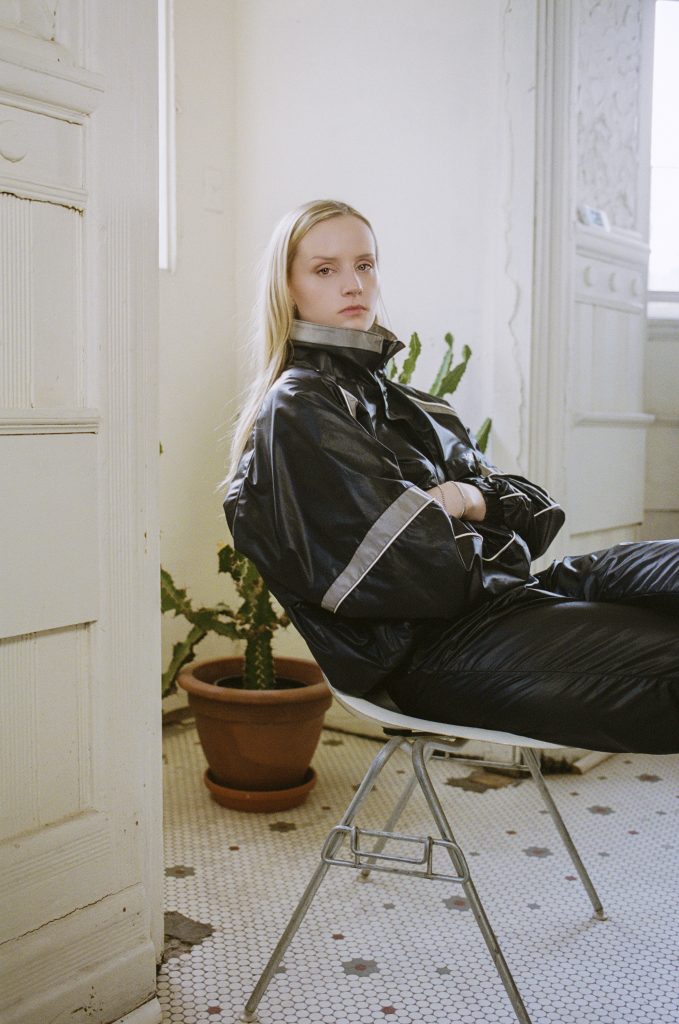 Othello Gray
Othello GrayIt’s been just over a year since ALPHA. Where do you feel like you’re at right now, on your artistic journey and on your personal journey?
This is the question I have been asking myself in a really existential way for the past couple of weeks. I don’t really have the answer, and I think that’s what’s exciting but also a little bit nerve-wracking. Everything I’ve done in my career I’ve had a pretty clear vision for, but it’s taken me time to develop those visions. I have to allow myself the patience and wait for some sense of curiosity and inspiration and excitement to hit. And once I have those visions, it’s hard work, but it’s totally attainable to achieve my goals. So, knowing that, I’ve learned to allow myself to take time to figure out what’s next. And that’s where I’m at right now. I’m playing tennis every day. I play basketball every day. I walk the dog. I read and I’m watching good films and hanging out with my girl. And just being a person.
Read more:
Angel Olsen Is Ready for the Big Time
It’s (Still) Punk Rock and Roll to Avril Lavigne
Basia Bulat Digs Deeper With The Garden
Newsletter
Join our mailing list for the latest and biggest in fashion trends, beauty, culture and celebrity.
Read Next

Fashion
Are Fashion Brands Getting Greener?
While the fashion industry is making a lot of noise about being more sustainable, a closer look shows that its earth-friendly commitments are often more illusion than reality.
by : Marouchka Franjulien- Apr 19th, 2024

Beauty
What Beauty Packaging Is Actually Sustainable?
We sought out leaders in the field to help us get to the bottom of the blue bin once and for all.
by : Victoria Christie- Apr 19th, 2024

Beauty
Tested and Approved: Your New Hydrating Skincare BFF
This new product has all of your skin’s thirst-quenching needs covered.
by : ELLE Canada- Apr 17th, 2024


